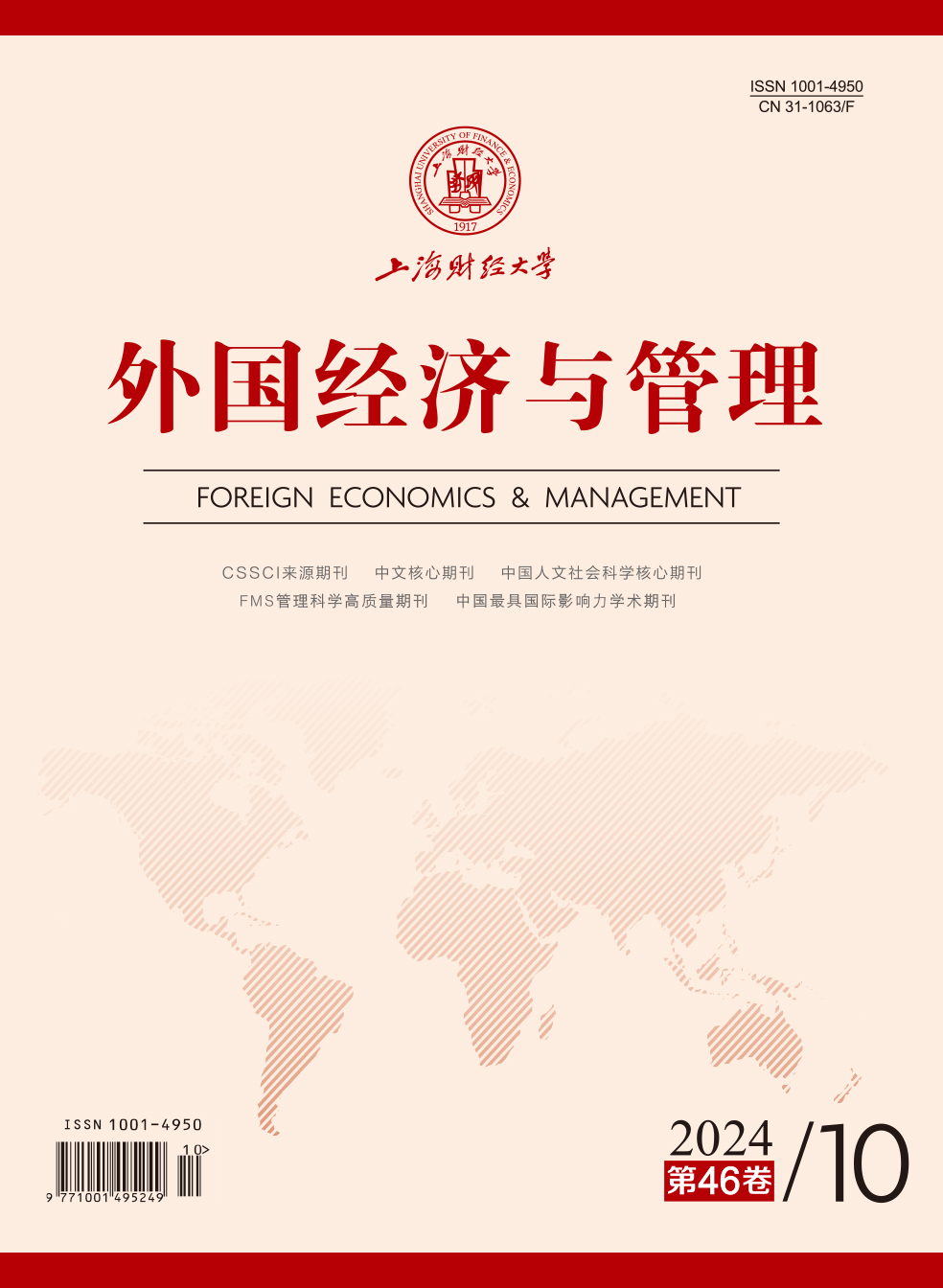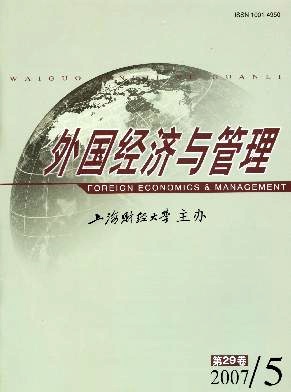消费行为代际影响与品牌资产传承研究述评
外国经济与管理 2007 年 第 29 卷第 05 期, 页码:47 - 53
摘要
参考文献
摘要
本文回顾了西方营销学界对消费行为代际影响的研究进展,介绍了相关研究现状,重点从代际影响的表现和测量、代际影响的决定因素和形成机理,以及代际影响的持续和减弱等三大方面梳理了相关研究成果。作者特别总结了代际影响与品牌资产传承的相关研究,以及代际影响的测量方法,最后为国内开展这方面研究提出了若干命题。
[1]Moore,E S,W L Wilkie,and J A Alder.Lighting the torch:How do intergenerational influences develop?[J].Advances in ConsumerResearch,2001,28:287-293.
[2]Heckler,S E,T L Childers,and R Arunachalam.Intergenerational influences in adult buying behaviors:An examination of moderatingfactors[J].Advances in Consumer Research,1989,16:276-284.
[3]Childers,T L,and A R Rao.The influence of familial and peer-based reference groups on consumer decisions[J].Journal of ConsumerResearch,1992,19(2):198-211.
[4]Shah,R H,and B Mittal.Toward a theory of intergenerational influence in consumer behavior:An exploratory essay[J].Advances inConsumer Research,1997,24:55-60.
[5]Moore-Shay,E S,and B M Berchmans.The role of the family environment in the development of shared consumption values:An inter-generational study[J].Advances in Consumer Research,1996,23:484-490.
[6]Moore,E S,W L Wilkie,and R J Lutz.Passing the torch:Intergenerational influence as a source of brand equity[J].Journal of Market-ing,2002,66(Apr.):17-37.
[7]Moschis,G P.Methodological issues in studying intergenerational influences on consumer behavior[J].Advances in Consumer Re-search,1988,15:569-573.
[8]Whitbeck,L B,and V Gecas.Value attribution and value transmission between parents and children[J].Journal of Marriage and theFamily,1988,50(Aug.):829-840.
[9]John,D R.Consumer socialization of children:A retrospective look at twenty-five years of research[J].Journal of Consumer Research,1999,26(Dec.):183-213.
[10]Viswanathan,M,T L Childers,and E S Moore.The measurement of intergenerational communication and influence onconsumption:Development,validation,and cross-culture comparison of the IGENscale[J].Journal of the Academy ofMarketing Science,2000,28(3):406-424.
[11]Francis,S,and L D Burns.Effects of consumer socialization on clothing shopping attitude,clothing acquisition,andclothing satisfaction[J].Clothing and Textile Research Journal,1992,10:35-39.
[12]Mandrik,C A,E F Fern,and Y Bao.Intergenerational influence:Roles of conformity to peers and communicationeffectiveness[J].Psychology&Marketing,2005,22(10):813-832.
[13]Moore-Shay,E S,and R J Lutz.Intergenerational influences in the formation of consumer attitudes and beliefs aboutthe marketplace:Mother and daughters[J].Advances in Consumer Research,1988,15:461-467.
[14]Webster,C,and L B Wright.The effects of strength of family relationship onintergenerational influence[J].Advancesin Consumer Research,1999,26:373-378.
[15]Moschis,G P.The role of family communication in consumer socialization of children and adolescents[J].Journal ofConsumer Research,1985,11(Mar.):898-913.
[16]Sorce,P,L Loomis,and P R Tyler.Intergenerational influence on consumer decision making[J].Advances in ConsumerResearch,1989,16:271-275.
[17]“中国代际关系研究”课题组.中国人的代际关系:今天的青年人和昨天的青年人——实证研究报告[J].人口研究,1999,23(6):56-62.
[18]Hofstede,Geert.Culture’s consequence:Comparing values,behaviors,institutions,and organizations across nations[M].2ed Ed.Thousand Oaks:Sage Publications,Inc.,2001.
[19]杨国枢.中国人孝道的概念分析(1984)[A].杨国枢主编.中国人的心理[C].台北:桂冠图书股份有限公司,1988:39-72.
[20]何佳讯.品牌关系质量本土化模型的建立与验证[J].华东师范大学学报(哲社版),2006,38(3):100-106.
[2]Heckler,S E,T L Childers,and R Arunachalam.Intergenerational influences in adult buying behaviors:An examination of moderatingfactors[J].Advances in Consumer Research,1989,16:276-284.
[3]Childers,T L,and A R Rao.The influence of familial and peer-based reference groups on consumer decisions[J].Journal of ConsumerResearch,1992,19(2):198-211.
[4]Shah,R H,and B Mittal.Toward a theory of intergenerational influence in consumer behavior:An exploratory essay[J].Advances inConsumer Research,1997,24:55-60.
[5]Moore-Shay,E S,and B M Berchmans.The role of the family environment in the development of shared consumption values:An inter-generational study[J].Advances in Consumer Research,1996,23:484-490.
[6]Moore,E S,W L Wilkie,and R J Lutz.Passing the torch:Intergenerational influence as a source of brand equity[J].Journal of Market-ing,2002,66(Apr.):17-37.
[7]Moschis,G P.Methodological issues in studying intergenerational influences on consumer behavior[J].Advances in Consumer Re-search,1988,15:569-573.
[8]Whitbeck,L B,and V Gecas.Value attribution and value transmission between parents and children[J].Journal of Marriage and theFamily,1988,50(Aug.):829-840.
[9]John,D R.Consumer socialization of children:A retrospective look at twenty-five years of research[J].Journal of Consumer Research,1999,26(Dec.):183-213.
[10]Viswanathan,M,T L Childers,and E S Moore.The measurement of intergenerational communication and influence onconsumption:Development,validation,and cross-culture comparison of the IGENscale[J].Journal of the Academy ofMarketing Science,2000,28(3):406-424.
[11]Francis,S,and L D Burns.Effects of consumer socialization on clothing shopping attitude,clothing acquisition,andclothing satisfaction[J].Clothing and Textile Research Journal,1992,10:35-39.
[12]Mandrik,C A,E F Fern,and Y Bao.Intergenerational influence:Roles of conformity to peers and communicationeffectiveness[J].Psychology&Marketing,2005,22(10):813-832.
[13]Moore-Shay,E S,and R J Lutz.Intergenerational influences in the formation of consumer attitudes and beliefs aboutthe marketplace:Mother and daughters[J].Advances in Consumer Research,1988,15:461-467.
[14]Webster,C,and L B Wright.The effects of strength of family relationship onintergenerational influence[J].Advancesin Consumer Research,1999,26:373-378.
[15]Moschis,G P.The role of family communication in consumer socialization of children and adolescents[J].Journal ofConsumer Research,1985,11(Mar.):898-913.
[16]Sorce,P,L Loomis,and P R Tyler.Intergenerational influence on consumer decision making[J].Advances in ConsumerResearch,1989,16:271-275.
[17]“中国代际关系研究”课题组.中国人的代际关系:今天的青年人和昨天的青年人——实证研究报告[J].人口研究,1999,23(6):56-62.
[18]Hofstede,Geert.Culture’s consequence:Comparing values,behaviors,institutions,and organizations across nations[M].2ed Ed.Thousand Oaks:Sage Publications,Inc.,2001.
[19]杨国枢.中国人孝道的概念分析(1984)[A].杨国枢主编.中国人的心理[C].台北:桂冠图书股份有限公司,1988:39-72.
[20]何佳讯.品牌关系质量本土化模型的建立与验证[J].华东师范大学学报(哲社版),2006,38(3):100-106.
引用本文
何佳讯. 消费行为代际影响与品牌资产传承研究述评[J]. 外国经济与管理, 2007, 29(5): 47–53.
导出参考文献,格式为:
上一篇:企业员工工作投入研究综述
下一篇:国外非营利组织市场导向研究综述





 5271
5271  330
330

